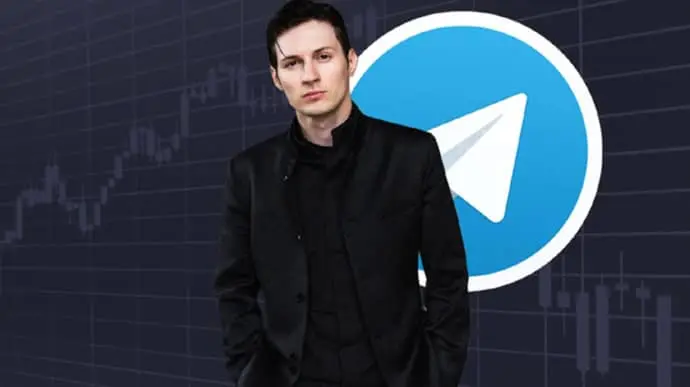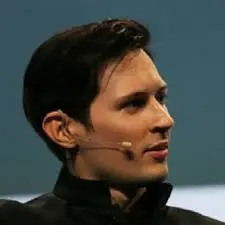Pavel Durov, a name synonymous with innovation in the digital age, has carved a niche for himself as one of the most influential tech entrepreneurs of our time. Born in Russia, Durov’s journey from a young programmer to the creator of one of the world’s most secure messaging apps, Telegram, is a story of resilience, innovation, and an unwavering commitment to freedom of speech.
Early Life and Rise to Prominence
Pavel Durov was born into a world where technology was just beginning to shape the future. His early exposure to coding and programming fueled his passion for creating something revolutionary. By 2013, Durov had already made a name for himself with VKontakte, Russia’s largest social media platform. However, his refusal to comply with government demands to shut down opposition communities on the platform led him to sell VKontakte and eventually leave Russia in 2014. This marked the beginning of his journey toward creating a platform that prioritized user privacy and freedom, leading to the birth of Telegram.
The Birth of Telegram and Its Impact
In 2013, Pavel Durov founded Telegram, an app that would soon become a household name across the globe. Unlike other social media platforms like Facebook, YouTube, WhatsApp, Instagram, TikTok, and Wechat, Telegram stood out for its commitment to user privacy and its advanced security features. Durov’s vision was clear: create a platform where users could communicate freely without the fear of surveillance or censorship. This vision resonated with millions, especially in countries with strict government controls on communication.

Telegram quickly gained popularity, particularly in regions like Russia, Ukraine, and former Soviet Union states, where people valued the app’s secure messaging features. However, this success did not come without challenges. In 2018, Telegram was banned in Russia after Durov refused to hand over user data to the authorities. The ban was a significant blow, but it was eventually reversed in 2021, further solidifying Durov’s stance as a defender of privacy and freedom of speech.
Challenges and Controversies
Despite its popularity, Telegram has not been without controversy. In recent years, the app has come under scrutiny for its role in facilitating criminal activities. Pavel Durov and Telegram have been accused of not doing enough to curb the use of the app for drug trafficking, the sharing of child sexual content, and other illegal activities. Critics have argued that Telegram’s weak moderation system has allowed misinformation, conspiracist content, and even neo-Nazi and paedophilic material to spread unchecked.
The situation escalated when French police arrested Pavel Durov in Paris, shortly after his private jet landed at Le Bourget Airport. The arrest, which was in relation to an investigation about the lack of moderators on Telegram, was widely criticized. Durov’s lawyer, Dmitry Agranovsky, described the arrest as “ridiculous” and an attack on freedom of speech. Agranovsky likened the accusations to blaming a car manufacturer for an accident, simply because its cars were used in the crime. The arrest highlighted the ongoing tensions between tech companies and governments over issues of moderation and responsibility.
The Global Impact and Reactions
The arrest of Pavel Durov did not go unnoticed. The Russian Embassy in France quickly intervened, seeking to clarify the reasons for the detention and to ensure Durov’s rights were protected. The embassy’s actions were echoed by the Russian Foreign ministry spokeswoman, Maria Zakharova, who questioned whether Western human rights NGOs would remain silent on Durov’s arrest, especially after they had criticized Russia’s decision to ban Telegram in 2018.
The arrest also sparked reactions from high-profile figures like American whistleblower Edward Snowden and Elon Musk, the owner of X (formerly known as Twitter). Snowden, who has been living in exile in Russia since 2013, condemned the arrest as an “assault on basic human rights of speech and association.” Elon Musk, who himself has faced criticism over the moderation and content hosted on his social media site, expressed his support for Durov, even using the hashtag #freepavel in one of his posts.
The Ongoing Debate Over Moderation and Free Speech
Telegram has always positioned itself as a platform for free speech, but the challenges it faces highlight the delicate balance between protecting user privacy and preventing the spread of harmful content. In countries like the UK, the app has been scrutinized for hosting far-right channels that played a role in organizing violent disorder in several English cities. Although Telegram did remove some of these groups, cybersecurity experts argue that its moderation system is still significantly weaker compared to other social media platforms and messenger apps.
Pavel Durov continues to stand by his principles, but the ongoing debate raises important questions about the responsibilities of tech companies in today’s digital age. As Telegram continues to grow and evolve, it remains to be seen how Durov and his team will navigate the complex landscape of content moderation, user privacy, and freedom of speech.
Conclusion
Pavel Durov’s journey is a testament to the power of resilience and the importance of staying true to one’s principles. From his early days in Russia to his current role as the CEO of Telegram, Durov has consistently championed the cause of freedom of speech and user privacy. Despite the challenges and controversies that have come his way, Durov’s commitment to these values has remained unwavering. As the world continues to grapple with issues of moderation and free speech in the digital age, Durov’s story serves as a reminder of the impact that one individual can have in shaping the future of communication.
If you love staying updated with the latest in fashion, travel, tech, sports, and gadgets, be sure to follow news feed nation. Don’t miss out on any updates—get the freshest news and trends delivered right to you!





























